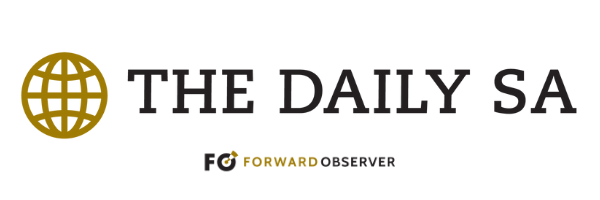Good morning. Here’s your Daily Situational Awareness for Wednesday, 23 March 2022. You can receive this daily briefing by signing up at https://forwardobserver.com/daily-sa
TODAY’S BRIEFING:
- SolarWinds 2.0: Okta & Microsoft breached
- Chinese anti-ship missiles can track and sink U.S. carriers
- CISA says shipping cyber infrastructure is weak
- Disclosure limits on surveillance operations
- Hazards Warning
UPGRADE TO EARLY WARNING AND GET THESE BRIEFINGS:
- Russia-NATO SITREP: Cyber warfare in Ukraine and beyond
- Indo-Pacific SITREP: The future U.S. Army in the Pacific
- Far Left Activity Rollup & Outlook
- Upcoming Event Calendar
SITUATIONAL AWARENESS
SOLARWINDS 2.0: OKTA & MICROSOFT BREACHED: An emergent cyber group called Lapsus$, claims it released source code for Microsoft’s Bing search engine, Maps, and virtual assistant software. Additionally, the group released screenshots of “super user” access on Okta’s identity management platform. Notably, Okta manages in-house credentialing for companies like FedEx, Moody’s, T-Mobile, Fidelity, and JetBlue. A Phobos Group founder said, “there is a non-zero possibility of this being a SolarWinds 2.0.” (AC: While the group claims no political affiliation, the disruption to internal credential management could severely degrade operations in a wide range of industries. Leaks of source code or sale of credentials to state actors could aid in long-term collection and disruption efforts. – D.M.)
CHINESE ANTI-SHIP MISSILES CAN TRACK AND SINK U.S. CARRIERS: A recent Congressional Research Service report on China’s naval capabilities cites the view of top U.S. commanders that China’s long-range fires platforms can track moving targets like U.S. aircraft carriers and potentially sink them from thousands of miles away. The Commander of U.S. Indo-Pacific Command confirmed an assessment that China’s layered long-range missile capability could effectively clear the Chinese coast of U.S. naval surface combatants out to 1,500 miles from its shoreline. While the U.S. Navy has known that China was developing such a capability for years, it has only been recently acknowledged by senior military leaders as a mature anti-access and area-denial capability. (AC: The CRS report echoes widely reported prior findings by U.S. Naval Intelligence officials. China’s goal to militarily dominate South and East China now appears to have been achieved. The U.S.’ limited forward-deployed force posture in the region exacerbates China’s anti-access and area-denial capabilities by increasing the likelihood of a successful Chinese attack on a limited opposing force. This imbalance of military power in the region effectively eliminates the U.S. as a threat to China’s ambitions of repatriating Taiwan to its control. – M.M.)
CISA SAYS SHIPPING CYBER INFRASTRUCTURE IS WEAK: The Cybersecurity Infrastructure Security Agency (CISA) Director, Jen Easterly, highlighted that the maritime transportation sector is weak against cyberattacks. The director stated the complexity to secure the industry from attack is due to “unsecure control systems make maritime organizations a prime target for malicious actors.” (AC: Coming after President Biden’s statement that Russia may be planning a cyberattack against the U.S., CISA is concerned how vulnerable the shipping industry is compared to the financial or defense sectors. According to the Department of Homeland Security, about $5.4 trillion flows through the sector each year and accounts for a quarter of U.S. gross domestic product. – D.F.)
DISCLOSURE LIMITS ON SURVEILLANCE OPERATIONS: The bipartisan Government Surveillance Transparency Act was introduced this week and would set time limits for surveillance material before disclosure. After the limit expires, the suspect would be notified that their communications are being monitored. The bill aims to promote transparency on court-ordered criminal surveillance warrants. Digital communications, such as emails, search histories, phone calls, and wiretaps, are specifically included. Exceptions in the legislation allow for a 180-day delay period in extenuating circumstances. (AC: If signed into law, the proposal is intended to tamper down on the increasing number of new government cases each year. Disclosures could mitigate criminal extremist activity if individuals are aware law enforcement is specifically watching them by name; however, persistent criminals will adopt evasive communication methods against law enforcement measures – D.F.)
HAZARDS WARNING
Upgrade your Situational Awareness to Early Warning and continue the brief here: https://forwardobserver.com/subscribe

